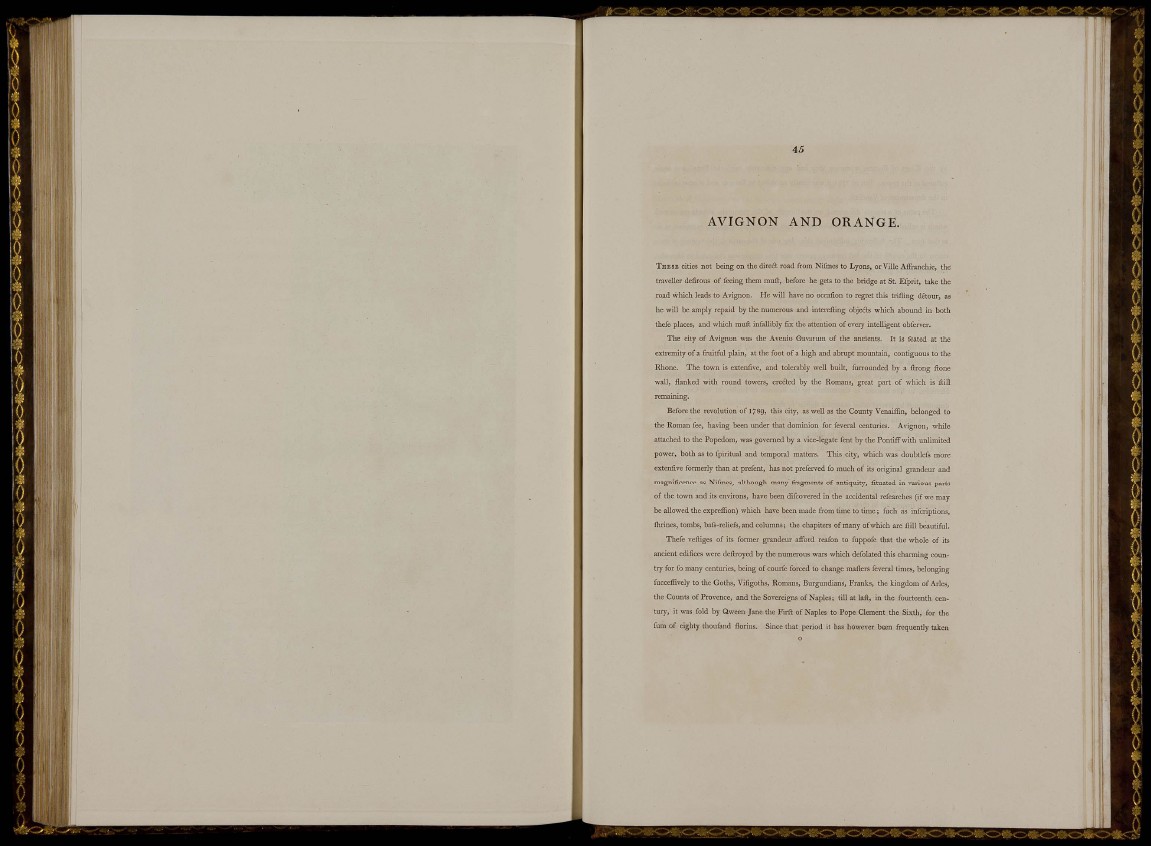
i f e ^ s i ^ f WO T
[ïiiSK^Iti^ Ï^ Î ÏMÎ if m m
'if ^
i f f <• -'i-t.'-. ' • Jf - .
' t * • 'if
I- ' 1
j L , '
• - 1 • JIG 1
AVIGNON AND ORANGE.
'•j ••f
THESE cities not being on the dired road from Nilines to Lyons, orVille AiFranchie, the
traveller delirous of feeing them muft, before he gets to the bridge at St. Efprit, take the
road which leads to Avignon. He will have no occaiion. to regret this trifling detour, as
he will be amply repaid by the numerous and interefting objedts which abound in both
thefe places, and wlilch muft infallibly fix the attention of every intelligent obferver.
The city of Avignon was the Avenio Gravaram of the ancients. It is fcated at the
extremity of a fnutful plain, at the foot of a high and abrupt mountain, contiguous to the
Rhone. The town is extenfivc, and tolerably well built, furrounded by a ftrong Itone
wall, flanked with round towers, ereited by the Romans, great part of which is flill
remaining.
Before the revolution of 1789j this city, as well as the County Venaiflin, belonged to
the Roman fee, having been imder that dominion for feveraJ centuries. Avignon, while
attached to the Popedom, was governed by a vice-legate fent by the PontiiFwith unlimited
power, both as to fpiritual and temporal mattei-s. This city, which was doubtlefs more
extenfive formerly than at prefent, has not preferred fo much of its original grandeur and
magniflcencc as Nifines, although many fragments of antiquity, fituated in various parts
of the town and its environs, have been difcovered in the accidental refearches (if we may
be allowed the expreflion) which have been made from time to time; fuch as infcriptions,
flu-ines, tombs, bafs-reliefs, and columns; the chapiters of many of which are flill beautiful.
Thefc veftiges of its former grandeur afford reafon to fuppofe that tlie whole of its
ancient edifices were deftroycd by the numerous wars which defolated this charming country
for fo many ccnturies, being of courfe forced to change mailers feveral times, belonging
fucceflively to tlie Goths, Viflgoths, Romans, Burgundians, Franks, the kingdom of Aries,
the Counts of Provence, and tlie Sovereigns of Naples; tillatlaft, in the fourteenth centuiy,
it was fold by Qween Jane tlie Firft of Naples to Pope Clement the Sixth, for the
fum of eighty thoufand florins. ' Since that period it has however been frequently taken